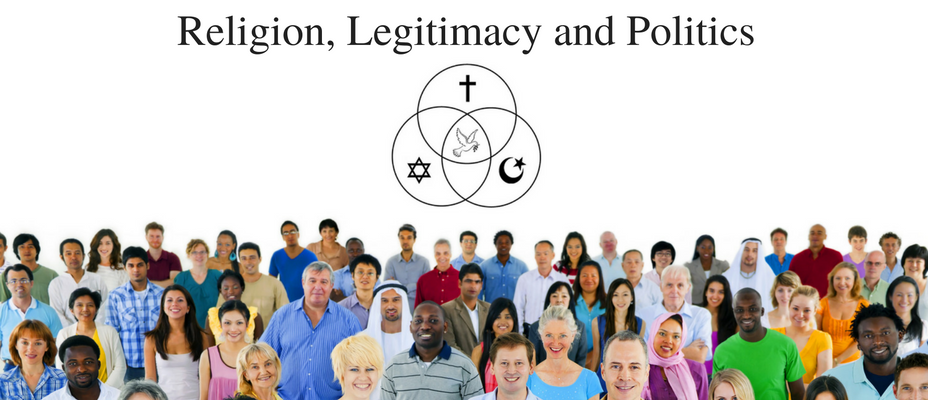By Rudy Barnes, Jr., July 29, 2023
Religions are about morality and mysticism, and unlike church doctrine, the American civil religion emphasizes morality over mystical religious beliefs. In a democracy, elections reflect a nation’s morality, and the church has failed to be a moral steward of our democracy. The church is shrinking, but it will likely continue to reflect America’s polarized partisan politics as its largest social institution.
Jesus was a universalist Jew who challenged Mosaic Law as God’s standard of righteousness with the primacy of love over law. The greatest commandment made our love for God dependent on the moral imperative to love our neighbors as we love ourselves. Jesus never claimed to be divine. He called his disciples to follow him, not to worship him.
Since the 1st century the early church has subordinated the moral imperatives taught by Jesus to exclusivist beliefs in the divinity of Jesus Christ as the only means of salvation. A Christian Universalist Church once emphasized following the teachings of Jesus, but in 1961 it merged with Unitarian Universalists, leaving the church without a proponent for a universalist faith.
A recent Gallup Poll indicated that American church membership has fallen from 70% in 2010 to less than 50%. In 2016 the church lost its moral compass when most white Christians voted for the narcissist Donald Trump. While Trump’s immorality is the antithesis of that taught by Jesus, the church has not yet disavowed Trump’s corrupt morality.
Partisan politics shapes morality more than Christianity shapes politics. America needs a civil religion that defines moral standards for its pluralistic democracy. If the church cannot reform itself and give primacy to the universal and altruistic teachings of Jesus over its exclusivist doctrines, then a new Enlightenment is needed to promote a universal civil religion.
A civil religion would acknowledge that God’s will is to reconcile and redeem humanity based on the teachings of Jesus, and to oppose evil in the cosmic spiritual battle between the forces of good and evil. That Gnostic principle was taught by Mani, Marcion and Jesus; but the moral duality of good versus evil in the world has been denied by Christian and Jewish theodicy.
God’s will is to reconcile and redeem humanity while Satan’s will to divide and conquer. Jesus acknowledged a spiritual duality in which the light of God’s redemptive love is needed to dispel the darkness of Satan’s evil; but Satan does a convincing imitation of God in politics and the church. America needs a civil religion that promotes God's reconciling power of good over evil.
As a retired United Methodist pastor, I crossed the boundaries of Christian doctrine after learning that Thomas Jefferson considered “the teachings of Jesus the most sublime moral code ever designed by man.” America needs a civil religion based on the moral teachings of Jesus; but since it would likely shrink the church, it will have to come from outside the church.
Notes:
On the greatest commandment as a common word of faith, see http://www.religionlegitimacyandpolitics.com/2015/01/the-greatest-commandment-common-word-of.html.
On Love over Law: A Principle at the Heart of Legitimacy, see http://www.religionlegitimacyandpolitics.com/2015/01/love-over-law-principle-at-heart-of.html.
On U.S. Church Membership Falling Below Majority for First Time, see Jeffrey M. Jones, Gallup, March 29, 2021, at https://news.gallup.com/poll/341963/church-membership-falls-below-majority-first-time.aspx.
Thomas Jefferson considered the teachings of Jesus the most sublime moral code ever designed by man, but he had nothing but contempt for church doctrines and dogma. Alexis DeTocqueville considered the many variations of Christianity essential to American democracy. On Thomas Jefferson and Alexis deTocqueville and their views on the moral values of religion in American politics, see Religion, Moral Authority and Conflicting Concepts of Legitimacy (July 1, 2017) at http://www.religionlegitimacyandpolitics.com/2017/07/religion-moral-authority-and.html.
Gnosticism is a collection of religious ideas and systems that coalesced in the late 1st century AD among Jewish and early Christian sects and emphasized personal spiritual knowledge above the proto-orthodox teachings, traditions, and authority of religious institutions. See https://en.wikipedia.org/wiki/Gnosticism.
Manichaeism was founded in the 3rd century by the Parthian prophet Mani. It teaches an elaborate dualistic cosmology describing the struggle between a good, spiritual world of light, and an evil, material world of darkness.[8] Manichaeism reveres Mani as the final prophet after Zoroaster, the Gautama Buddha and the Jesus Christ.It thrived between the third and seventh centuries, and at its height was one of the most widespread religions in the world. On Mani and Manichaesm, see https://en.wikipedia.o\g/wiki/Manichaeism.
Marcionism was an early Christian dualistic belief system that originated with the teachings of Marcion of Sinope in Rome in the 3rd century around the year 144. Marcion was an important figure in early Christianity who preached that the benevolent God of the Gospel who sent Jesus Christ into the world as the savior was the true Supreme Being, different and opposed to the malevolent Demiurge or creator god, identified with the Hebrew God of the Old Testament.[2][3][5] On Marcion and Marcionism, see https://en.wikipedia.org/wiki/Marcionism.
On the Old Testament god (or demiurge), Robert Myers has asked, Is God Still relevant? “Perhaps the time has come to abandon literal and anthropomorphic images and understandings of God altogether and return to ancient understandings of God as Spirit, as Pure Relationship, as a holy and transcendent Mystery, or as Marcus Borg put it The Something More? See Progressing Spirit, July 13, 2023.
Rabbi Jonathan Sacks has explained that “Dualism entered Judaism and Christianity when it became easier to attribute the sufferings of the world to an evil force rather than to the work of God.” For Sacks, God is the source of the bad as well as the good, judgment as well as forgiveness, and justice as well as love, so there is no room for Satan in Sacks’ monotheism. Sacks explains that “…the bad God does is a response [punishment] to the bad we do.” See Dualism: Satan’s Evil Versus God’s Goodness at http://www.religionlegitimacyandpolitics.com/2015/11/dualism-satan-evil-versus-god-goodness.html.
Theodicy seeks to resolve the problem of evil that arises when omnipotence, omnibenevolence, and omniscience are all simultaneously ascribed to God. See https://en.wikipedia.org/wiki/Theodicy.
